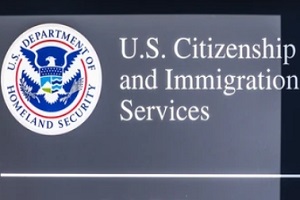Form I-140 is an important form in the U.S. immigration process for employees. It allows U.S. employers to petition for qualified foreign nationals to work permanently in the United States when there are no qualified American workers available for the offered job.
When an employer files Form I-140, they must prove to U.S. Citizenship and Immigration Services (USCIS) that the foreign national meets the requirements for one of several employment-based green card categories. These categories include priority workers, professionals holding advanced degrees, skilled workers, and more.
To file Form I-140 successfully, petitioners must submit certain required documents to demonstrate eligibility. The following essential pieces of evidence are necessary for most I-140 petitions.
Proof of Qualifying Job Offer
 At the most basic level, Form I-140 requires that a genuine job offer exists. USCIS mandates documentation showing details of the permanent, full-time job opportunity, which includes a formal letter of employment signed by an authorized hiring manager.
At the most basic level, Form I-140 requires that a genuine job offer exists. USCIS mandates documentation showing details of the permanent, full-time job opportunity, which includes a formal letter of employment signed by an authorized hiring manager.
The job offer letter must specify the foreign national’s job title, main duties and responsibilities, proposed start date, salary and benefits, and other standard employment terms.
In some cases, USCIS also requests copies of signed employment contracts detailing agreements between the worker and employer.
Evidence of Capacity to Pay the Offered Wage
In addition to officially offering the job, employers must provide paperwork proving their financial ability to pay the sponsored worker’s wage, as listed on the labor certification or in the job offer letter. This obligation lasts from the priority date until the employee becomes a U.S. permanent resident.
Acceptable forms of evidence include:
- Federal tax returns or annual reports showing company revenue, income, or profits
- Audited financial statements confirmed by a certified public accountant
- Business bank statements, assets documentation, or sufficient investments
Petitioners struggling to demonstrate their ability to pay may also submit other evidence, such as new funding commitments from venture capital investors or approved lines of credit.
Required Employee Qualifications
Each employment-based preference category under Form I-140 has mandated qualification thresholds the sponsored employee must meet. Employers should include documentation verifying the worker has the required education, skills, training, and experience levels.
Some examples of acceptable documentation include:
- College diplomas, transcripts, or equivalency evaluations
- Professional licenses, certifications, or competency credentials
- Resumes, CVs, or biographical summaries
- Letters of reference from past employers, colleagues, professors
- Evidence of industry association or group membership
Petitioners should carefully match these qualification documents to the requirements defined in the labor certification tied to the I-140 petition.
Priority Worker Petitions
Foreign nationals seeking classification as priority workers under the EB-1 category have strict evidentiary guidelines. These sub-categories include:
EB-1A Extraordinary Ability or Achievement
If demonstrating extraordinary abilities, such as renowned researchers or award-winning professors, required documents include:
- Evidence of internationally acknowledged prizes or awards
- Published material in professional trade publications or important media outlets
- Original contributions of great significance in the field
- Scholarly articles written and published in professional journals or media
- Membership in associations requiring outstanding achievements
EB-1B Outstanding Researchers and Professors
Besides scholarly articles and research history, documentation must also show:
 A minimum of three years of experience teaching or conducting research
A minimum of three years of experience teaching or conducting research- An offer of a tenured, tenure-track, or permanent research position in the academic field
- The intent of a U.S. university or institution of higher learning to employ the individual
EB-1C Executives and Managers
In addition to backgrounds in managerial or executive roles abroad, documentation includes:
- Evidence of qualifying relationship between foreign company and U.S. petitioner
- Proof of continuous business operations for all entities for at least one year
The employer must also articulate the intended U.S.-based managerial or executive position.
National Interest Waiver Petitions
Seeking a national interest waiver involves showing that approving the petitioner’s Form I-140 serves the interests of the United States. Documentary evidence must establish the following:
- The endeavor underlying the proposed employment has substantial merit and importance
- The foreign applicant is well-positioned to advance the endeavor
- A labor certification waiver would be in the national interest
While technical qualifications matter, highlighting humanitarian, economic, or other contributions adds significant value.
Labor Certification Documentation
Most of the time, Form I-140 petitions require an approved labor certification application (PERM) from the Department of Labor. Only a handful of categories, such as national interest waivers, allow petitioners to bypass labor certification.
If applicable, employers must submit:
- ETA Form 9089 – Application for Permanent Employment Certification
- ETA Form 9141 – Prevailing Wage Determination
The job requirements and qualifications specified on these labor certification forms must fully match those defined in the I-140 supporting documents such as diplomas and resumes.
Proof of Legal Status
For foreign nationals currently working in the United States, maintaining valid immigration status while an I-140 case is pending is mandatory. Therefore, copies of the applicant’s latest visa or approval notice are required, such as:
- Form I-797 approval notices for statuses such as H-1B or O-1
- Valid Form I-94 documenting authorized periods of admission
- Unexpired foreign passports containing U.S. visas
In some situations, if the applicant’s status changes, documents might have to be updated accordingly.
Additional Forms
Depending on personal situations, additional documentation may be recommended when filing Form I-140, such as:
- Job portability according to INA 204(j) requests
- No-objection letters from current employers
- Sworn statements describing lawful status
- Advisory opinions from USCIS to remedy complex cases
Petitioners should consider consulting closely with legal counsel to assess if supplementary forms can help strengthen their case.
Turn to Pride Immigration’s Form I-140 Expertise for a Smoother Application Process
 USCIS mandates extensive paperwork when petitioning for foreign workers using Form I-140 across multiple employment-based preference categories.
USCIS mandates extensive paperwork when petitioning for foreign workers using Form I-140 across multiple employment-based preference categories.
Employers and employees are responsible for making sure that the applications have the necessary supporting materials. Missing or inadequate documents directly lead to frustrating delays and increased legal expenses to fix the problems.
Pride Immigration’s legal specialists have helped numerous employers and foreign nationals successfully file Form I-140 petitions over many years. We understand the paperwork requirements that apply across all employment-based categories, from EB-1 extraordinarily able persons to EB-3 skilled and professional workers.
Our personalized guidance identifies the ideal documents to satisfy eligibility and qualification thresholds, avoiding time-consuming requests for additional evidence. Contact us today at (703) 594-4040 or online to take advantage of our extensive knowledge.
Beeraj Patel, Esq.
Latest posts by Beeraj Patel, Esq. (see all)
- Advantages of the L-1A Visa for Startup Founders and CEOs - November 13, 2025
- Who Qualifies for the L-1B Visa and What Counts as Specialized Knowledge - October 20, 2025
- How Long You Must Work Abroad to Qualify for the L-1A Visa - October 13, 2025